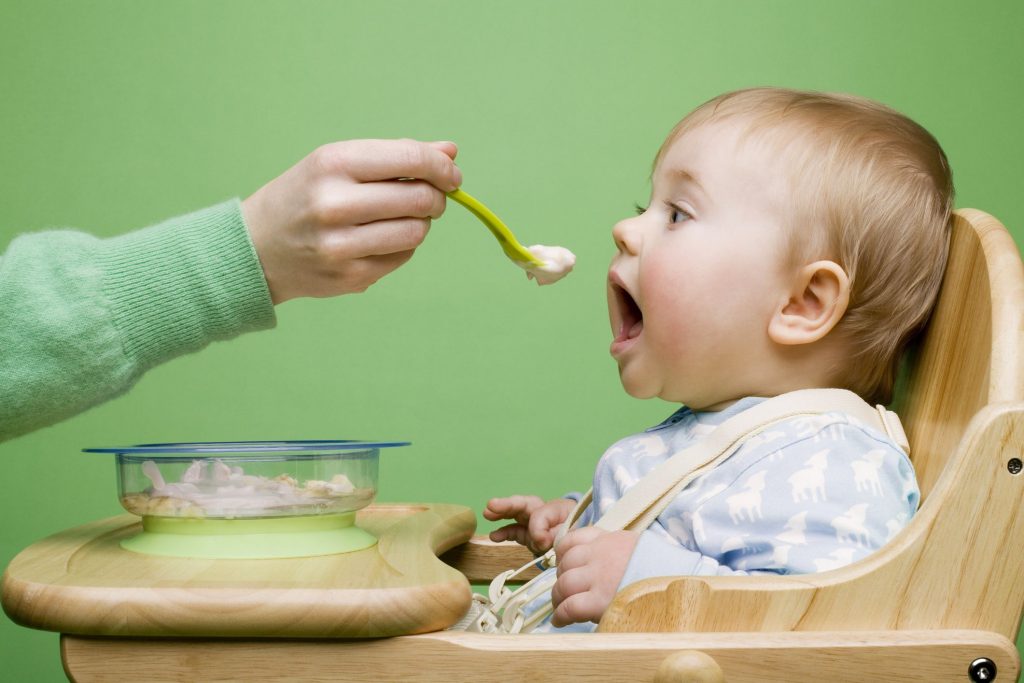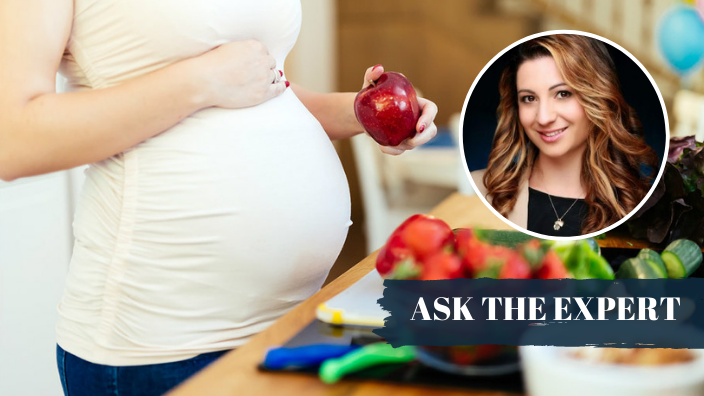By Georgia Pandelios, Accredited Practising Dietitian and Owner at Nutrition Prescription.
Food allergy is a serious medical condition that is life-long, but what if we could prevent our children from getting them? Is it even possible?
The answer is yes. The latest research highlights the importance of the maternal diet during pregnancy and breastfeeding, and it’s usefulness as a tool in reducing the risk of babies developing allergies. The theory behind this has to do firstly with desensitisation to allergens and secondly, with supporting the developing immune system of the baby whilst in-utero.
READ MORE: How to be vigilant when babysitting grandkids with food allergies
Summed up, these 3 tips are key in allergy prevention during pregnancy:
First, start with desensitisation. Regularly include common food allergens in your pregnancy diet to expose your baby whilst in the womb. These are tree nuts, peanuts, cooked egg, cow’s milk, soy, wheat, fish and seafood. Note: do not include any allergens / foods that you personally are allergic to.
Secondly, feed your gut right. Over the last few years we have been learning more and more about the complex relationship our gut microbiota has on our health, particularly on our immune system. There are two things we can do to help our gut bacteria thrive – include probiotics and enjoy a variety of prebiotics. Probiotics are those microorganisms found in yoghurt and in supplement form, whilst prebiotics refer to the fibre and resistant starches that the probiotics feed off. Particularly during the final trimester, specific probiotic supplements may reduce the risk of infant and childhood allergies.
READ MORE: Dietitian, Georgia Pandelios, shares her top eight tips for shedding those COVID curves

Thirdly, vitamin D. This is something I personally researched during my university thesis in paediatric nut allergies. Vitamin D plays a vital role in immune development. We can get this from the sun and vitamin supplements. During pregnancy, particularly in a post pandemic world, we may be having less sun exposure – which puts maternal vitamin D levels at risk of deficiency. The research highlights associations between low levels of vitamin D during pregnancy (usually winter gestations being higher risk) and the likelihood of having a baby with a food allergy. Getting the right amount of vitamin D is key, as other research has reported excess vitamin D may also increase the risk.
Remember to not take any supplements (vitamins, minerals or other) without first consulting with your doctor or maternal health dietitian.
READ MORE: Can a healthy diet boost your immune system? Dietitian Georgia Pandelios dishes up
What about after the birth?
Your breastmilk will be another tool that can support food allergy prevention. After the birth, if you are breastfeeding, continue these same practices.
When introducing solids, although the guidelines for the general population state to introduce solids around 6 months of age, when you have a family history of food allergies and signs of readiness for solids are there, your paediatrician, GP or dietitian may suggest you start slightly earlier (but not before 4 months), in line with the infant feeding recommendation by the Australian Society of Clinical Immunology and Allergies (ASCIA). Subsequently, these guidelines also recommend regularly exposing your infant to all of the common allergens before they are 12 months. At times, it can be a little scary and confusing to do this, especially if you aren’t sure if bub is ready – feel free to contact our team or speak with your family doctor for additional support.
READ MORE: Dietitian, Georgia Pandelios, shares her top tips on meal planning like a pro

READ MORE: Fat facts: Cholesterol friendly diet explained by dietitian, Georgia Pandelios
Unfortunately, although allergy prevention in infancy can be successful, whilst less common, food allergy can still develop in teens and even adults. Knowing the signs and symptoms of a food reaction can be lifesaving for families with a strong genetic history of atopic diseases (e.g. allergy, asthma, eczema).
If you or your partner have a family history of allergies, discuss an allergy prevention plan with our team to help you safely approach food allergen exposure and allergy prevention for your child during pregnancy and beyond.
If you need help with your pregnancy diet or introducing solids, contact Nutrition Prescription for a nutrition assessment with tailored nutrition recommendations. You can book through www.nutritionprescription.com.au or email info@nutritionprescription.com.au.
Nutrition Prescription’s accredited practising dietitians offer nutrition consultations that are specially designed for the whole family – from infants to adults and elderly, through to highly specialised fertility-preconception, paediatric, sports nutrition and food reaction services. We can assist with all your nutrition needs, including complex and chronic conditions – in English, Greek and Portuguese.
Follow Nutrition Prescription on Instagram & Facebook
Disclaimer: The information in this article is generalised and is not intended to replace medical or dietetic advice, nor directly manage any medical conditions. For personalised advice, please speak with your doctor or contact us via info@nutritionprescription.com.au to make an appointment with one of our Dietitians.
READ MORE: Georgia Pandelios shares why the Mediterranean diet is the king of all diets

